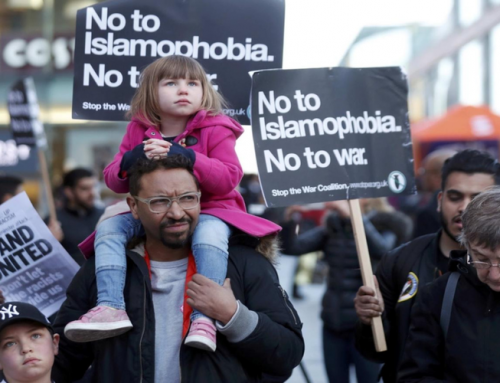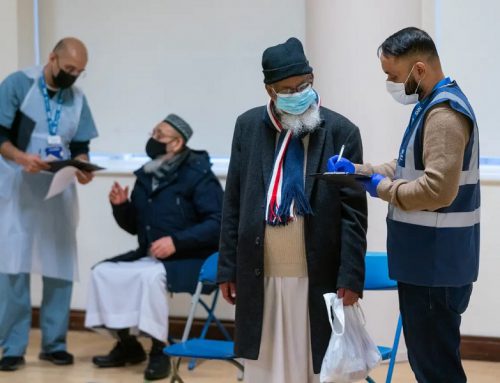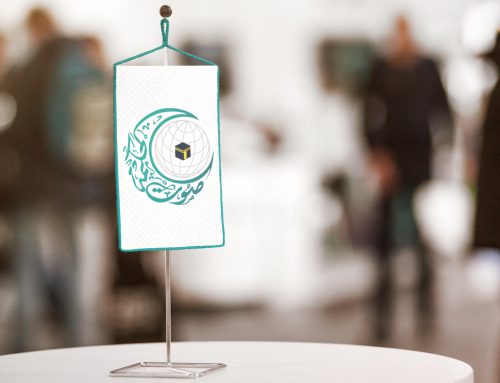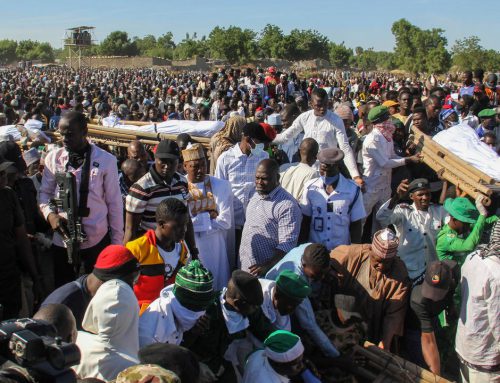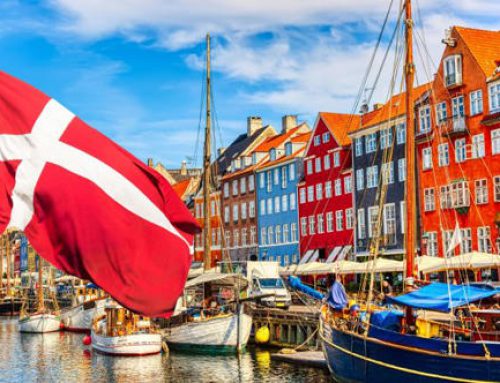The Holy Quran contains many verses that stipulate that the People of the Book are closer to Allah and to Muslims than others. It also urges Muslims to consider them and to believe in their righteousness. The Almighty said: “You will surely find the most intense of the people in animosity toward the believers [to be] the Jews and those who associate others with Allah; and you will find the nearest of them in affection to the believers those who say, “We are Christians.” That is because among them are priests and monks and because they are not arrogant.” (82: Al-Mai’da: 82). The books of hadiths and Sunna too was filled with the tolerant examples of the Prophet’s treatment of Christians, especially his story with the Christians of Najran, who came to visit him in Al-Madina, where he offered them hospitality, and made of his clothes a carpet for them to set, and when the time for their prayers came, he made the prayer call from his mosque, as reported in the true narrations of Hadith.
This Quranic and prophetic approach was adopted and applied by Muslims during the time of the Islamic Caliphate with the arrival of the Muslim armies to lands in which Christianity was spread, such as the Levant, Egypt and others. The story of the Coptic complaint about Amr Ibn Al-Aas and his son to the Caliph Umar Ibn Al-Khattab is too popular to be mentioned among many other examples. Despite the mistakes made by some Muslim rulers in the Umayyad and Abbasid covenants against the Copts of Egypt in regard to lifting taxation from those who would convert to Islam, which led to the revolution of the Bashmurian Copts in the era of the Caliph Al-Mamoun in 831 AD; the general relationship between Muslims and Copts in Egypt continued as a bright example for the Muslim-Christian tolerance. Even the revolution referred to was not an official revolution, as the Coptic Church renounced it, and the Patriarch of the Coptic Church, I
St. Joseph (Yousab I) called on the revolutionaries to stop their revolution, the thing that was also supported by Antakya Patriarch Dionysius, who accompanied Al-Mamoun in his military campaign to put down the revolt. Al-Mamoun only decided to settle the issue militarily only after the tireless and continuous efforts of the Coptic Church and Patriarch Yousab I to stop the revolution and persuade Bashmurian to return to the fold of the Abbasid citizenship.
However, the history of the relationship between both parties, away from this early revolution in the history of Muslims, is filled with many examples with positions of great interconnectedness and brotherhood between the followers of the two heavenly religions. Here we present a number of historical positions exchanged between Muslims and Copts, which are being questioned these days by ISIS and those who adopt violent approaches, by targeting the Copts in their churches, without realizing the spirit of Islam and its traditions, which was established 14 centuries ago in all areas that Islam entered.
The Islamic and Coptic history books mention the honorable position of the Copts of Egypt during the Crusader Wars, which used religion to justify its political and economic aspirations, that the Franks preempted their attack by asking the Copts for their help against the Muslims under the pretext of the Christian brotherhood that brought them together. The position of the Coptic Church was categorical and strict, and Coptic Church chose to line-up with Muslims against the Crusaders, which the Crusaders punished the Copts of Egypt for, when they prevented them from performing their holy pilgrimage to Jerusalem after the city fell in their hands in 1099 in retaliation for the Copts’ lack of cooperation with the Crusaders. English historian Boucher in her book titled: “The history of the Coptic Nation” mentions that the Copts were all glad to defeat the Crusaders and that they celebrated this defeat, because they knew the real motives for these campaigns. They also knew well the good treatment that Muslims offered them.
It should be noted here that the Coptic historian Mansi Al-Qamas wrote in his book titled: “The History of the Coptic Church” that in 1651, a conflict broke out between the churches of Saint George in Ancient Egypt, which was targeted by ISIS recently, and the religious Islamic endowment of Sheikh Nomani, over the right of ownership of some facilities, and despite the critical position that shaped the conflict between the right of the church and the right of the mosque, a Muslim judge established the scale of justice, and ruled that the church had a right in the property. He ordered that these facilities belonged to the church and he did not rule in favor of the mosque. This strict position is taken from and inspired by Quraan: “O you who have believed, be persistently standing firm for Allah, witnesses in justice, and do not let the hatred of a people prevent you from being just. Be just; that is nearer to righteousness. And fear Allah ; indeed, Allah is Acquainted with what you do,” (Al-Mai’da: 8) which puts us in a stark paradox that this church, which the Muslim judge ruled in favor in the real estate dispute, is now lacking the right to exist, and was targeted in April by ISIS, where 106 people were killed and wounded.
As long as the situation requires that we condemn what the Copts are subjected to in Egypt by the hard-liners, who are no longer clear as to whom they work and according to which plan they operate, it is necessary to recall an honorable position of the Coptic Church in preserving the unity of Egypt and its security. During the time of the victories of Mohammed Ali Pasha, and the privileges and foreign protections enjoyed by some non-Muslim communities in the Abbasid state, Russia sought to gain some influence in the Middle East. Russia saw in the Copts, who belong to the Orthodox Church, which was protected and supervised by it, the best way to do so. Russia sent an ambassador to the Patriarchate St. Peter VII (Boutros “El-Gawly) (1809-1852) and offered him that Russia is ready to bear the responsibility of protecting the Copts in Egypt. The Patriarchate’s response was shocking to the Prince and he said to him: Is your (Russian) King living forever? He said to him: No, sir, he is a human being who dies just like other human beings. The Patriarchate replied: “You are living under the care of a king who dies, but we are under the care of a king that never dies, that is God.” By then, the Russian delegate was overwhelmed, kneeled under the Patriarchate’s feet and started kissing it and left the place with gratefulness to this simple man. He said, “I was not amazed by the Pyramids, nor the high buildings, nor by the many wonders I have seen in this region, but by this Coptic Patriarchate.”
When Mohammed Ali heard about this story, he was very pleased and went to congratulate the Coptic Patriarchate on his position, his patriotism and loyalty. The Patriarchate said to him: “Do not thank someone who carries out his duty towards his country.” Muhammad Ali told to him in tears: “You have raised your position today as well as that of your country. May you have a position like that of Mohamed Ali in Egypt, and may you have a vehicle for your rides the same as his).
Muhammad Ali’s good relationship with the Copts of Egypt was not maintained by his grandson, Abbas II Helmi, who was in constant disagreement with the Copts, for personal reasons and who one day decided to deport all them to Sudan. He called upon Sheikh Al-Azhar Ibrahim al-Bajuri to consult him and get a religious decree from him. When he heard the request of Helmi, he told him in his face “This is not of your deeds. This is forbidden by Islam. They are the owners of a homeland and they have a covenant in our necks,” thus failing his plan, and proving Al-Azhar as a religious institution that is immune to any violation of the norms of Islam and its principles, concerning the people of book and violations against other religions.
It is worth recalling the strenuous efforts made by the British to lead the sedition and division in the relationship between Muslims and Copts. But all their efforts failed. When the famous lawyer, Ahnuk Fanus, called for a political establishment for the Copts and adopting radical discourse in Egypt, the Copts, headed by Sinot Hanna and his brother Bishri Hanna and the Bishop of Asyut City, aborted this idea and killed it before it was born. It only person included under its umbrella its sole founder, thus failing the efforts of the British. When the assassination of Prime Minister Boutros Ghali took place in 1911, the Copts held a Conference in March 1911 for the purpose of aborting any division between them and the Muslims. They invited the family of Boutros Ghali represented by his son Wasif, who was living in Paris. The British accused him of putting his hand in the hands of his father’s murderers. He responded by saying: “It is better if I put my hand in the hands of my father’s murderers than putting my hands in the hands of my nation’s murderers.”
The position of the Coptic Church is bright in defending the issues of the Arab and Muslim nations. After the signing of the Camp David peace agreement with Israel, Patriarchate Shenouda refused to accompany the Egyptian president to Israel and rejected any normalization initiative with the Israeli entity, a position the church paid for, not only by the seizure of the Coptic Monastery of Sultan in Jerusalem, despite the fact that Coptic Church has obtained a court ruling from the occupation authority to hand Monastery over to it, instead of handing it over to the Church of Abyssinia, but also by adopting a hostile Israeli policy towards the Coptic Church due to its position to boycott Israel.
These noble positions exchanged between the Muslims and the Copts in Egypt terminate any legitimacy for any targeting of the Copts in Egypt or any targeting of any other minority living among Muslims. The mercy and tolerance of Islam, guaranteed fourteen centuries, will still be imposed in the twenty-first century in which spirit of human rights govern relationships.
*Dr.Tarik Ladjal is Professor of History at Effat University in Jeddah, Saudi Arabia

